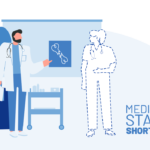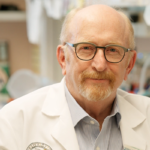Three bills centering reintroduced in the 119th Congress would ease educational debt burden, increase placement access for visa holders and support the mental health of current healthcare workers.

Rheumatology Workforce for the 21st Century
As rheumatology care evolves into a team-based approach, the workforce is expanding to incorporate advanced practice providers, physical therapists and social workers, all of whom can play vital roles in patient care.
The Who, What & Where of Rheumatology
In the Medical Education Year in Review session at ACR Convergence 2024, David Leverenz, MD, MEd, discussed the current make-up of rheumatology, how competency is measured and how to help rheumatology fellows thrive.

Tackling the Rheumatology Workforce Shortage
WASHINGTON, D.C.—The workforce shortage in rheumatology is a looming crisis that demands immediate attention. The ACR’s 2015 Workforce Study projected that by 2030, the supply of adult rheumatologists would dwindle by 31%, in contrast to the increase in demand by close to 138%.1 The situation is even worse for pediatric rheumatology and in rural and…
Changes in the Rheumatology Workforce
Mannion et al. set out to describe the adult rheumatology workforce in the U.S. by measuring the number of rheumatologists and advanced practice providers entering and exiting the field and studying their demographics.
ACR Voices Support for the Healthcare Workforce Resilience Act
The ACR joined with 52 organizations in thanking House and Senate leaders for introducing the Healthcare Workforce Resilience Act, which would support employment-based visas for international physicians and nurses.

U.S. Supreme Court Ruling Potentially Dampens Diversity
Rheumatologists consider ways to encourage racial and ethnic diversity among students and in the workforce in the aftermath of the Supreme Court’s ruling that ends affirmative action in higher education.
ACR Hill Day Participants Ask Congress to Address Medical Workforce Shortage
Nearly 70 rheumatologists and rheumatology professionals convened in Washington, D.C., to advocate on behalf of legislation that would preserve and help to grow America’s healthcare workforce.

Letter to the Editor: A Workforce Shortage Solution
The issue of the rheumatology workforce shortage is certainly vexing. Not only does it leave large segments of the population without adequate care for patients with serious rheumatic diseases, but it also increases the burden on the few rheumatologists who serve populous, underserved regions of the country. Solutions suggested in The Rheumatologist (“ACR Workforce Solutions…

Rheumatology Research Foundation Supports High-Risk, High-Reward Ideas
Now in the second year of his 2021–2023 term as the Rheumatology Research Foundation president, V. Michael Holers, MD, a professor of medicine and immunology and the Smyth Professor of Rheumatology at the University of Colorado, Denver, is looking forward to fortifying and expanding the Foundation’s missions in the framework of its new strategic plan.